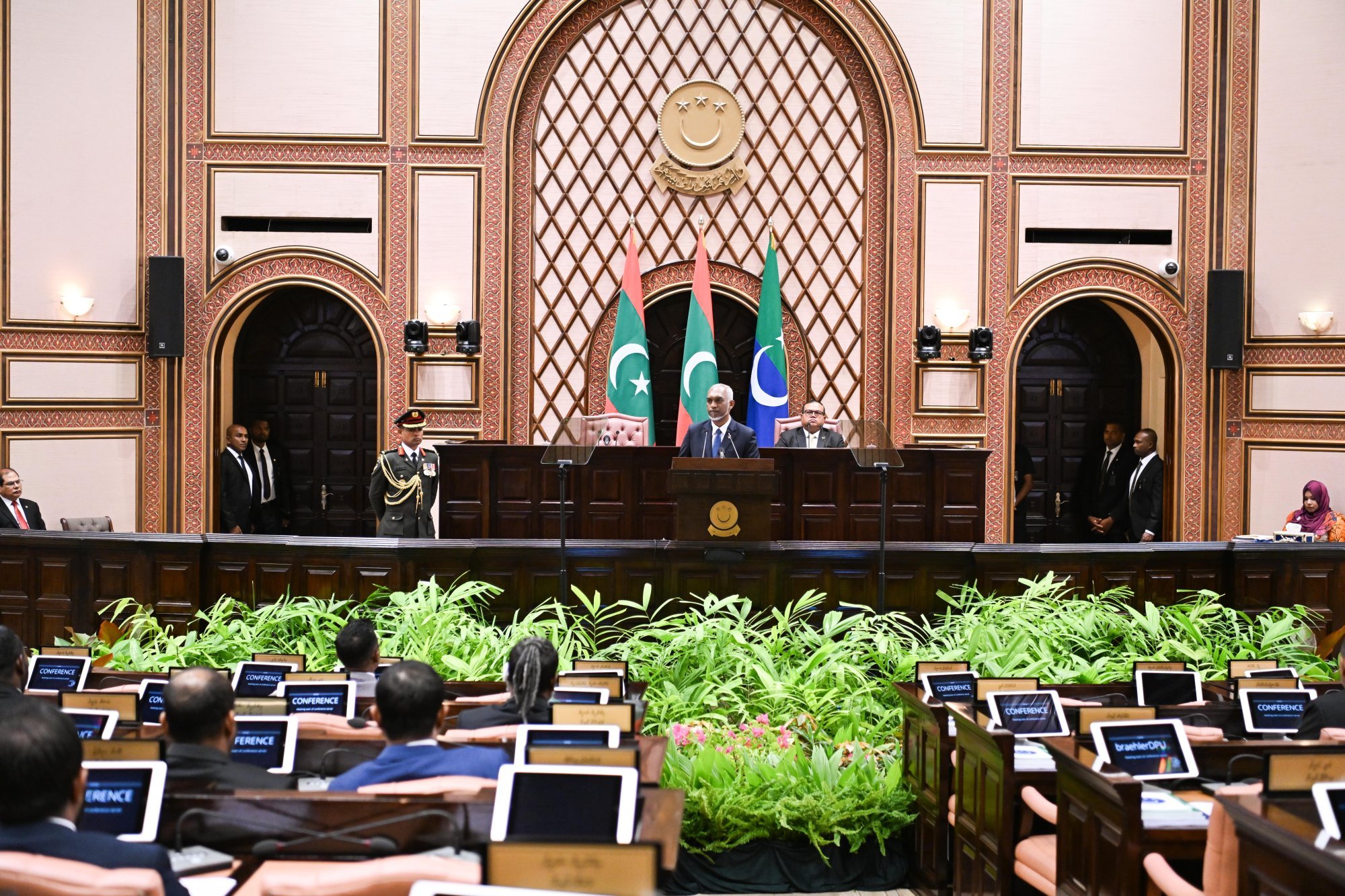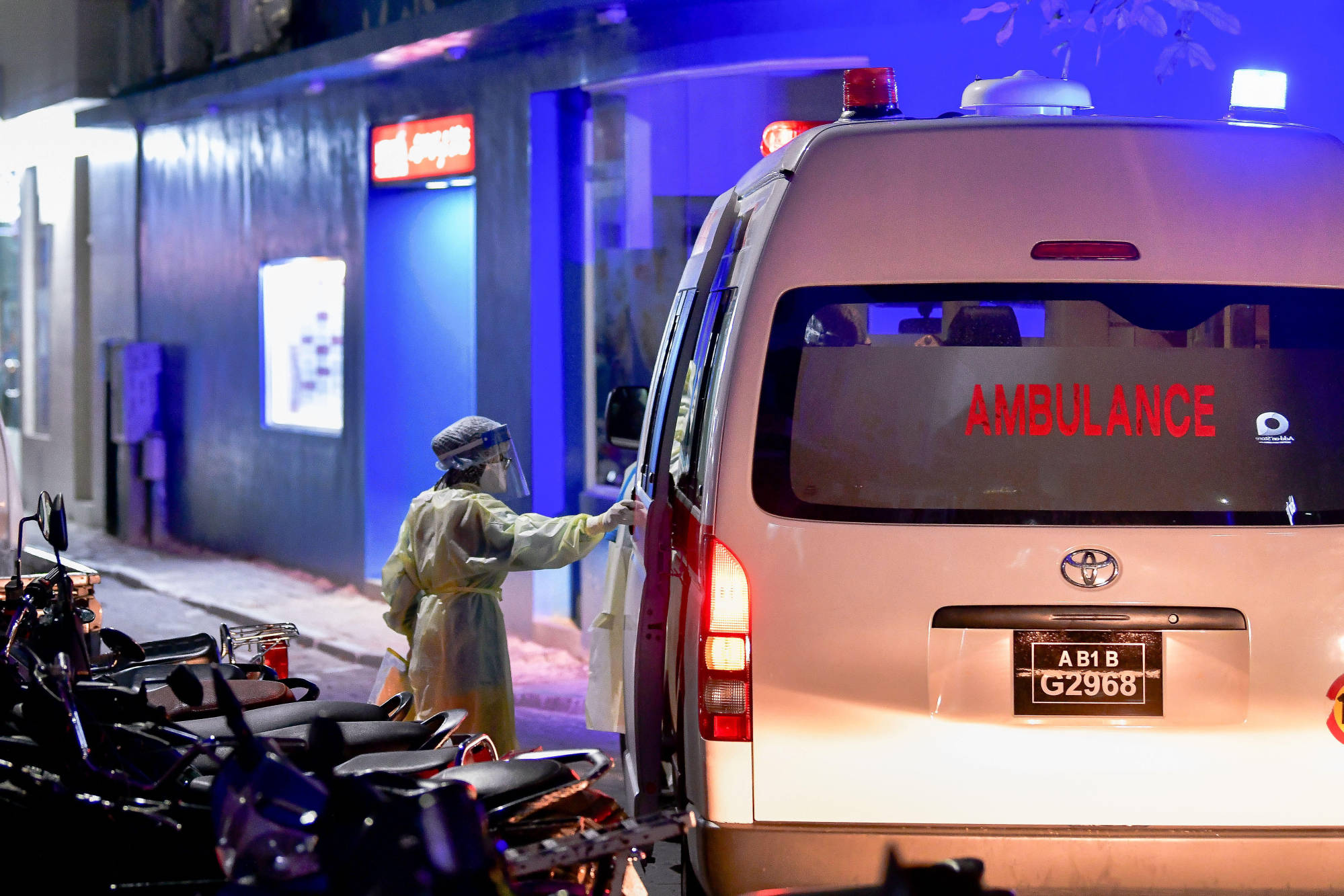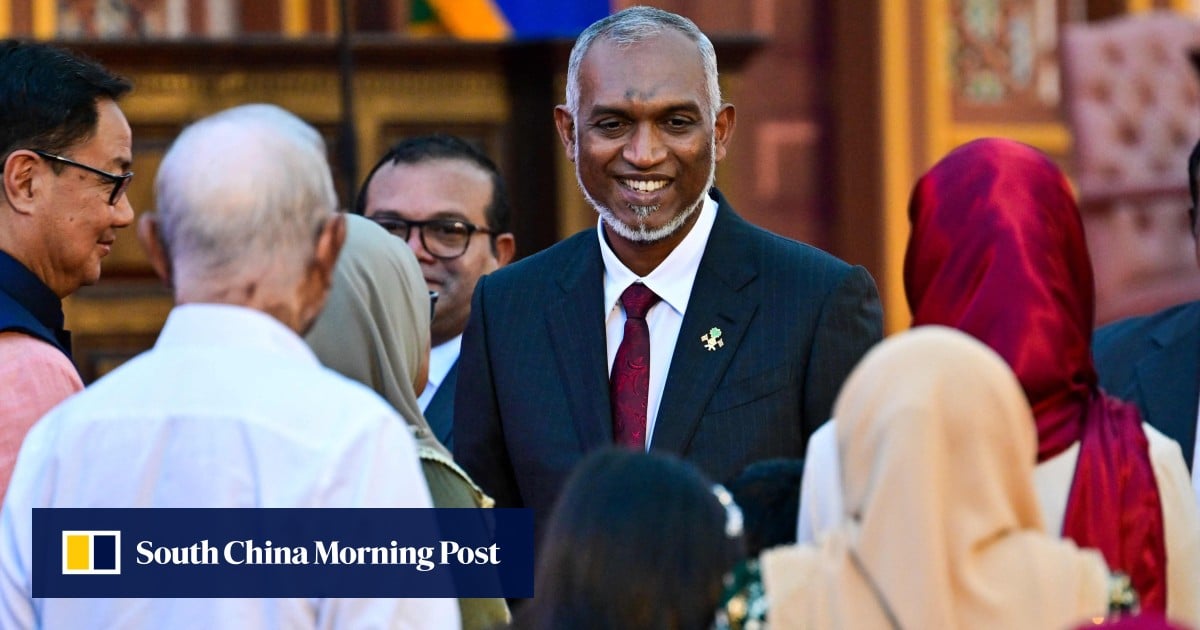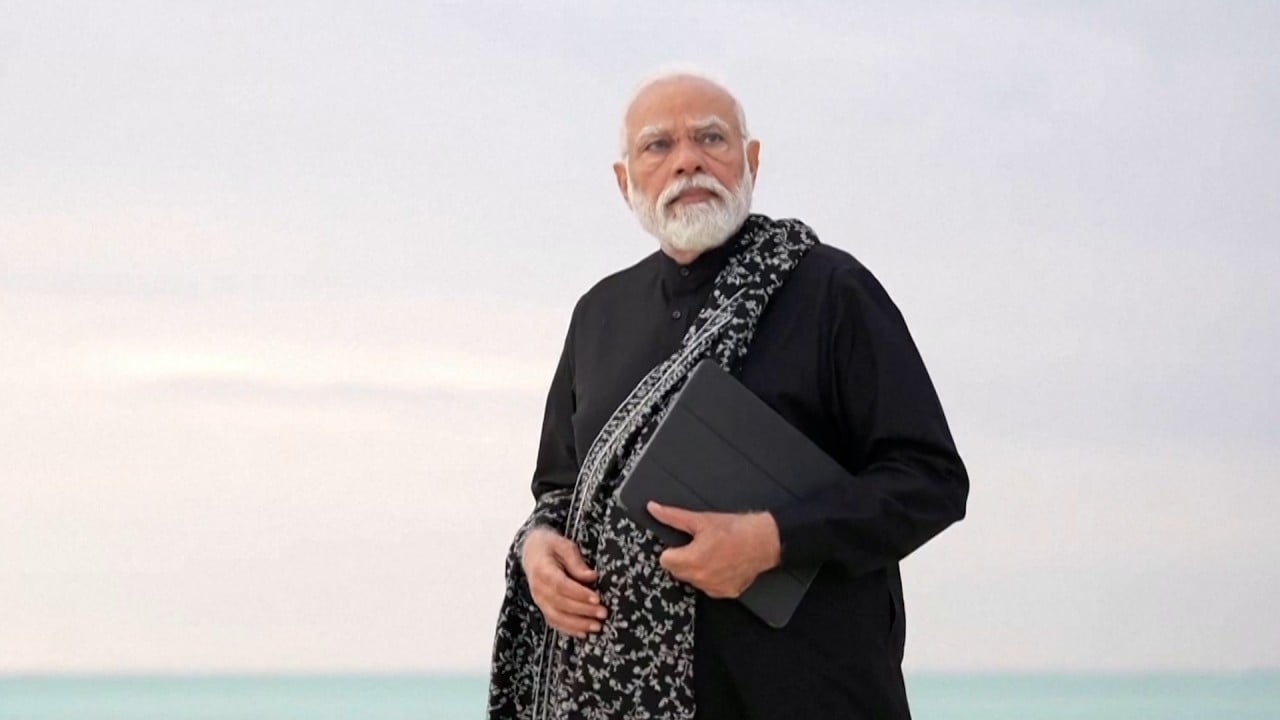The first group of Indian troops will leave by March 10 and the rest by May 10, the Maldivian capital said, citing an agreement at a high-level meeting in the Indian capital last Friday.
Noting that the issue for Malé “is the presence of any foreign military in the Maldives, not only India’s”, Nilanthi Samaranayake, visiting academic at the South Asia programmes at the United States Institute of Peace (USIP) think tank, said the current discussion about Maldives tilting to China suggests that there are only two options for Male.
“But Muizzu’s foreign policy appears to be aimed more fundamentally at expanding Maldives’ base of partners,” she said, adding that these include deeper connections to the Middle East such as through the president’s visit to Turkey in November.
Is ‘India Out’ of the Maldives as China-friendly leader Muizzu takes charge?
Is ‘India Out’ of the Maldives as China-friendly leader Muizzu takes charge?
During the visit, Malé reached a US$37 million deal with a Turkish company for the acquisition of military drones to conduct maritime surveillance and patrols, a move widely seen as an attempt to reduce dependence on Indian military that conduct surveillance in the Indian Ocean Region.
Last month, Muizzu also met with the commander of the US Indo-Pacific Command, where Admiral John Aquilino reiterated his commitment to strengthen capacity building in the Maldivian defence force.
“[Muizzu] appears interested in maintaining long-standing ties with the US,” Samaranayake said, adding that Malé has also received maritime security and counterterrorism equipment from Washington.
While much of the attention is focused on the changing “dynamics” in India-Maldives ties, Samaranayake noted that Muizzu has said the island nation still needs Delhi’s partnership.
“It would not be surprising if the Maldives eventually requests a new package of security help from India due to its significant maritime capacity needs,” she added.

As an island state, maritime security is a critical area for the Maldives, with broader stability in the Indian Ocean “fundamental” for its security, according to its former foreign minister Abdulla Shahid.
“For its own interests as well as Maldives, India still has an opportunity to show how it can adapt its ‘Neighbourhood First’ and Sagar policies to the new domestic leadership in a smaller South Asian country,” Samaranayake said.
The ‘Neighbourhood First’ policy spells out India’s attempts in emphasising ties with its neighbours while Sagar – Security and Growth For All in the Region – is a maritime initiative that prioritises the Indian Ocean region.
Swaran Singh, an international studies professor at New Delhi’s Jawaharlal Nehru University (JNU), said the growing opposition within the Maldives to the government’s anti-India stance “may become increasingly costly for the Maldives’ internal stability, which India would not like to see”.
Last month, the two main opposition parties in the Maldives expressed concern about the government’s “anti-India stance,” while describing India as the country’s “most long-standing ally”.
China-India ‘disconnect’ could fuel ‘summer of discontent’ along disputed border
China-India ‘disconnect’ could fuel ‘summer of discontent’ along disputed border
India has been making “well-intentioned efforts” to establish itself as the ‘first responder’ and ‘preferred security partner’ in the region, said Pooja Bhatt, a New Delhi-based maritime and regional security analyst.
“The island nation might lose out on that partnership,” she said, as Delhi constantly faced the political challenge of neighbours choosing between China or India, Asia’s two rising powers.
“What we see in the Maldives is a manifestation of this political reality,” she said.
While Indian Ocean countries ought to see the value of bilateral cooperation with India, Bhatt said New Delhi, too, needs to work harder to gain confidence in its neighbourhood.
A traditional partner for the Maldives, India has assisted in Malé’s human resource development, security, infrastructure, healthcare as well as disaster and humanitarian relief such as during the 2004 tsunami, the 2014 water crisis, and the recent Covid pandemic.

India’s Chief of Defence Staff General Anil Chauhan said last year his country has emerged as “first responder” in humanitarian help and disaster relief at the global level.
In December, India’s Southern Naval Command chief, Vice-Admiral MA Hampiholi described the Indian Navy as the “preferred security partner” in capacity building and capability enhancement of “friendly maritime nations”.
Modi had posted pictures of himself on social media strolling on beaches, and snorkelling in India’s Lakshadweep islands, off the coast of India’s southern Kerala state.
Describing Lakshadweep as “mesmerising”, Modi said the place “has to be on your list” of places to visit, angering some in tourism-dependent Maldives, who saw Modi’s efforts as an attempt to divert visitors to Lakshadweep. India was the Maldives’ largest source of visitors last year.
JHU’s Singh said this is not the first time that the Maldives has elected a “China sympathiser” as president.
“Democracies always throw up different leaders, so nothing can be predicted about how long Muizzu or the China-tilt of his presidency will survive”.
“But that remains the prerogative of the people of the Maldives and India’s interests remain limited to ensuring peace and prosperity in its immediate periphery,” Singh added.


